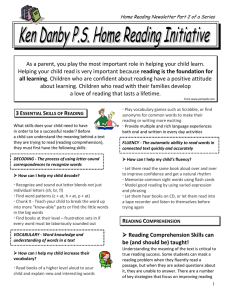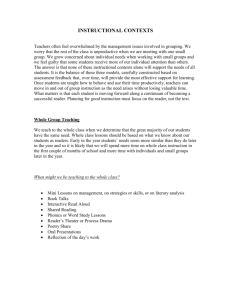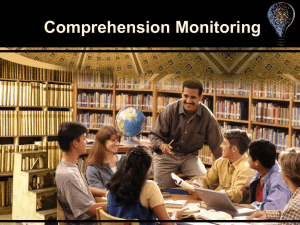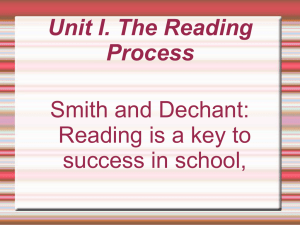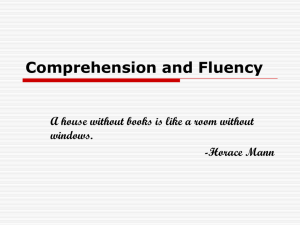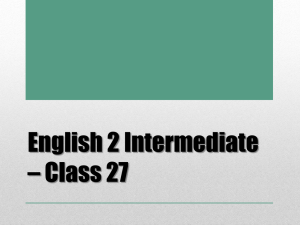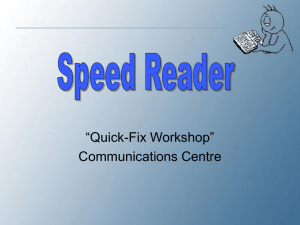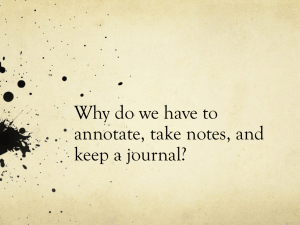Reading Power Key Phrases
advertisement
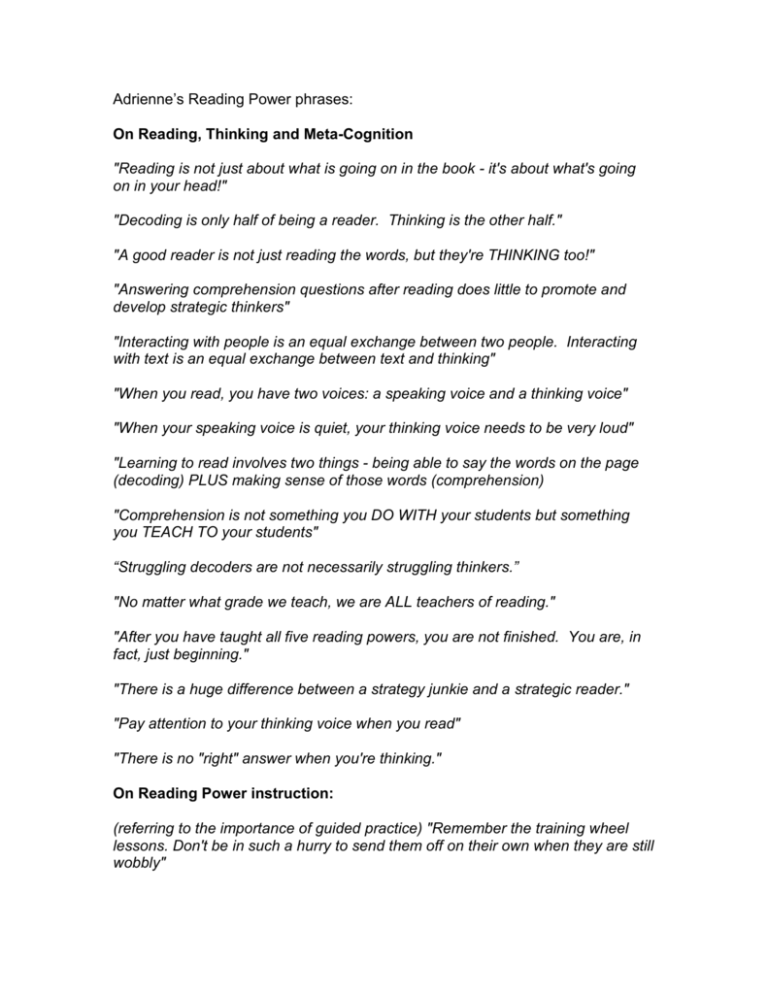
Adrienne’s Reading Power phrases: On Reading, Thinking and Meta-Cognition "Reading is not just about what is going on in the book - it's about what's going on in your head!" "Decoding is only half of being a reader. Thinking is the other half." "A good reader is not just reading the words, but they're THINKING too!" "Answering comprehension questions after reading does little to promote and develop strategic thinkers" "Interacting with people is an equal exchange between two people. Interacting with text is an equal exchange between text and thinking" "When you read, you have two voices: a speaking voice and a thinking voice" "When your speaking voice is quiet, your thinking voice needs to be very loud" "Learning to read involves two things - being able to say the words on the page (decoding) PLUS making sense of those words (comprehension) "Comprehension is not something you DO WITH your students but something you TEACH TO your students" “Struggling decoders are not necessarily struggling thinkers.” "No matter what grade we teach, we are ALL teachers of reading." "After you have taught all five reading powers, you are not finished. You are, in fact, just beginning." "There is a huge difference between a strategy junkie and a strategic reader." "Pay attention to your thinking voice when you read" "There is no "right" answer when you're thinking." On Reading Power instruction: (referring to the importance of guided practice) "Remember the training wheel lessons. Don't be in such a hurry to send them off on their own when they are still wobbly" “Even when you are not teaching a specific reading power lesson, try to integrate the language of thinking into your daily practice in all subject areas”. “It matters less which reading strategies you choose to teach, but more that everyone on your staff is teaching the same ones and using the same language when referring to them. “If we want our students to know what thinking sounds like, we need to model our thinking to them on a daily basis. We need to intentionally integrate this language into all aspects of our teaching.” “Reading Power is not grounded in any book or tub of books. It is grounded in the principals of thinking and meta-cognition”. On Connecting: "Your life is a story; it's just not written down on paper." "Go to where you know" (to find meaning) "Deep thinking connections help you understand the story better. Quick connections don't" "Why is it that we all read the same book, but we all made different connections." "Find a page when your thinking voice was VERY loud". "Does your connection help you to understand the story better?" “The purpose of making a connection is to enhance our understanding of the text’” On Questioning: "A deep-thinking question helps you to think deeper about the text." "It says here that.... but now I'm wondering about...." On Visualizing: "Visualizing is like seeing a movie in your mind while you read" "You don't use your eyes when you visualize" "Artists use paint to create a picture on the canvas. Authors use words to create a picture in your mind" On Inferring: "Not all authors tell you EVERYTHING! Sometimes they leave things out because they want YOU to figure it out for yourself" "A good reader is not just reading what IS in the text, but thinking about what ISN'T." "Inferring is filling in, in your head what is not written in the text" "Less inking means more thinking" "When you infer, you need to become a book detective. Look for the clues the author DID leave and use them to figure out what they didn't tell you." On Transforming: "Transforming is when your thinking gets re-arranged and re-organized because of something you read. You may end up with the same thought, only now it looks a little different" "Summarizing is two dimensional reading, synthesizing is three dimensional reading" "A summary is a re-tell; a synthesis is a re-think”.
